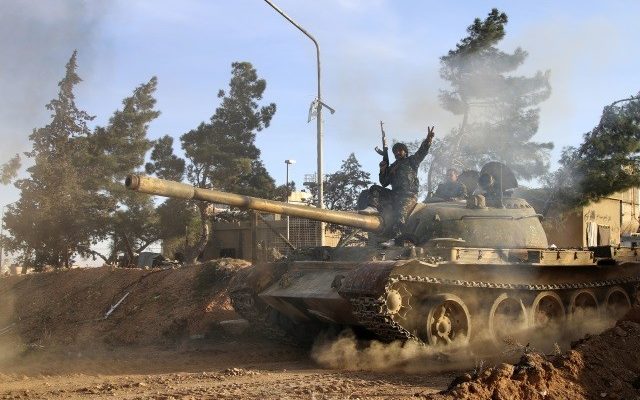In a major development, US-backed fighters breached the wall surrounding Raqqa, ISIS’ capital.
US-backed Syrian forces have breached the wall around Raqqa’s Old City, the US military said Tuesday, marking a major advance in the weeks-old battle to drive Islamic State (ISIS) out of its self-declared capital.
The US Central Command said the coalition conducted targeted strikes on two “small portions” of the Rafiqah Wall, allowing the fighters “to advance into the most heavily fortified portion” of the city. It said the strikes allowed Syrian Democratic Forces (SDF) fighters to bypass booby traps and snipers, and left most of the 2,500-meter (yard) wall intact.
The head of the Britain-based Syrian Observatory for Human Rights (SOHR), Rami Abdurrahman, said the breaching of the wall was the most important development to date in the battle for Raqqa.
He said three SDF units advanced toward the wall under air cover, breaking through the ISIS defenses, and that heavy clashes were underway.
The Kurdish-led SDF launched a multi-pronged assault on Raqqa last month after securing the surrounding countryside. On Sunday, the US-backed fighters crossed the Euphrates River on the southern edge of the city, completing its encirclement.
The US-led coalition is providing close air support to the SDF, which has already driven the terrorists from much of northern and eastern Syria.
Raqqa is home to nearly 200,000 mostly Sunnis and an estimated 5,000 ISIS fighters. The city, which has been under ISIS control since early 2014, is home to some of the terror group’s top leaders and recapturing it is seen as a crucial move in defeating the group militarily.
The loss of the northern Syrian city, one of the last ISIS strongholds, would deal a major blow to the group.
The terrorists are also on the verge of losing their last foothold in the northern Iraqi city of Mosul, where they declared an Islamic caliphate three years ago.
By: AP





